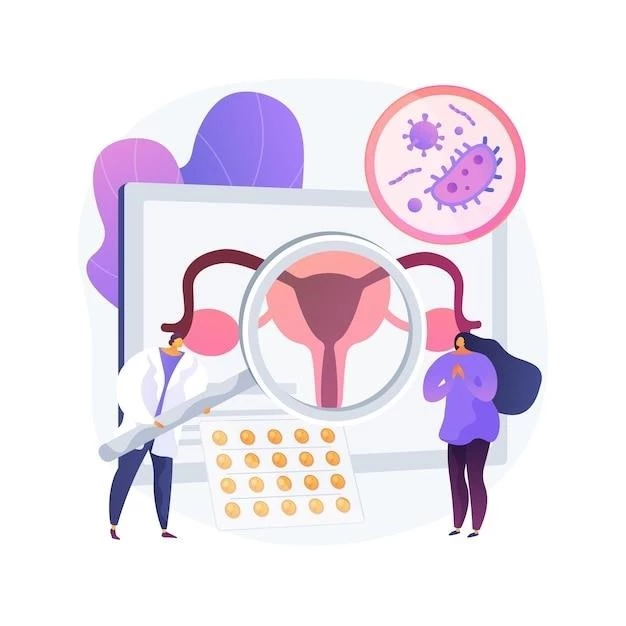Introduction to Premature Ovarian Failure
Primary ovarian insufficiency (POI), also known as premature ovarian insufficiency, is the partial or total loss of reproductive and hormonal function of the ovaries before the age of 40 due to follicular dysfunction or early loss of eggs․
Primary ovarian insufficiency (POI), commonly referred to as premature ovarian failure, is characterized by the early loss of reproductive and hormonal function in women under the age of 40․ This condition is marked by deficiencies in ovarian follicular function or the premature depletion of eggs, leading to amenorrhea, infertility, and hormonal imbalances․

Epidemiology of Premature Ovarian Failure
The prevalence of primary ovarian insufficiency among women under 40 is approximately 1% in the United States and 3․7% worldwide․
Prevalence Among Women Under 40
Primary ovarian insufficiency affects approximately 1% of women under 40 in the United States and around 3․7% globally, highlighting its impact on a significant portion of the female population in their reproductive years․
Definition and Terminology
Primary ovarian insufficiency (POI), commonly known as premature ovarian failure, refers to the depletion or dysfunction of ovarian follicles resulting in the cessation of menses before the age of 40; The terminology ‘premature ovarian failure’ has transitioned to ‘ovarian insufficiency’ due to the varying degrees of ovarian impairment over time․
Genetic Factors
Genetic factors play a significant role in the development of premature ovarian failure, with heterozygous mutations in the FOXL2 gene being linked to infertility and ovarian insufficiency․ Individuals with specific genetic variations may experience disruptions in the production of follicles٫ resulting in early amenorrhea and hypergonadotropic hypogonadism․
Autoimmune Disorders
In addition to genetic factors, autoimmune disorders have been identified as potential contributors to premature ovarian failure․ Autoimmune conditions like Hashimoto’s thyroiditis, Addison’s disease, and systemic lupus erythematosus can target ovarian tissues, leading to impaired ovarian function and the manifestation of premature ovarian insufficiency․
Symptoms and Clinical Presentation
Primary ovarian insufficiency (POI) presents with symptoms such as amenorrhea, infertility, and hormonal imbalances due to the dysfunction of the ovaries in women under the age of 40․
Amenorrhea
A key symptom of premature ovarian failure is amenorrhea, the absence of menstruation in women under 40, indicative of ovarian dysfunction and hormonal imbalances that characterize this condition․
Infertility
Infertility is a common consequence of premature ovarian failure, characterized by the inability to conceive due to ovarian dysfunction and the depleted ovarian reserve seen in women under the age of 40․
Diagnosis of Premature Ovarian Failure
Diagnosis of premature ovarian failure involves assessing menstrual disturbances and measuring levels of follicle-stimulating hormone․
Menstrual Disturbances
In the diagnosis of premature ovarian failure, menstrual disturbances such as irregular periods or amenorrhea play a crucial role in identifying potential ovarian dysfunction in women under 40․
Elevated Follicle-Stimulating Hormone Levels
Diagnosis of premature ovarian failure involves assessing elevated levels of follicle-stimulating hormone (FSH), which indicate impaired ovarian function and can help confirm the presence of the condition in women under 40․
Complications Associated with Premature Ovarian Failure
In addition to impacting fertility, premature ovarian failure can lead to long-term health effects due to hormonal imbalances and decreased estrogen production․
Long-Term Health Effects
Long-term health effects of premature ovarian failure may include hormonal imbalances, increased risk of cardiovascular disease, osteoporosis, and early onset of menopausal symptoms, necessitating appropriate management strategies to mitigate these complications and safeguard overall health and well-being․
Treatment Options for Premature Ovarian Failure
Treatment options for premature ovarian failure include hormone replacement therapy (HRT) and innovative approaches like in vitro activation․
Hormone Replacement Therapy (HRT)
Hormone replacement therapy (HRT) is a common treatment option for individuals with premature ovarian failure, aiming to alleviate symptoms related to hormonal imbalances by supplementing estrogen and progesterone levels in the body․
In Vitro Activation
One of the innovative treatment options for premature ovarian failure is in vitro activation, which aims to stimulate dormant follicles in the ovaries to potentially restore ovarian function and improve fertility outcomes in affected individuals․
FOXL2 mutations have a significant impact on female sexual development and may lead to conditions like premature ovarian failure and infertility due to disruptions in ovarian function․
Role of FOXL2 in Female Sexual Development
FOXL2 mutations play a crucial role in various aspects of female sexual development, including ovarian function and fertility․ Disruptions in the FOXL2 gene can lead to conditions like premature ovarian insufficiency, highlighting the significance of this gene in female reproductive health․
New Generation Treatments for Premature Ovarian Failure
Stem cell and exosomes therapy and mitochondrial activation technique are innovative treatments for premature ovarian failure․
Stem Cell and Exosomes Therapy
Stem cell and exosomes therapy is an emerging treatment approach for premature ovarian failure that involves using stem cells and exosomes to potentially restore ovarian function and improve reproductive outcomes in affected individuals․
Mitochondrial Activation Technique
The mitochondrial activation technique is an innovative approach that aims to enhance ovarian function through mitochondrial interventions, potentially leading to improved outcomes for individuals with premature ovarian failure․
Management of Premature Ovarian Failure in Primary Care
Counseling patients with primary ovarian insufficiency (POI) is crucial, requiring understanding, empathy, and guidance on potential treatments and implications for fertility and overall health․
Counseling Patients with POI
Guidance and counseling are essential components of managing patients with primary ovarian insufficiency, providing support, information on treatment options, and addressing concerns regarding fertility and overall health․
Referral to Specialized Resources
Referring patients with premature ovarian failure to specialized resources ensures comprehensive management tailored to individual needs, including fertility preservation options, psychological support, and access to advanced treatments․

Recognizing Symptoms and Confirming POI
Proper recognition of symptoms and confirmatory diagnostic work-up are essential to identify premature ovarian failure in women under 40․
Diagnostic Work-Up for Women Under 40
Diagnosing premature ovarian failure in women under 40 requires a thorough diagnostic work-up, including hormonal assessments and imaging studies to confirm the presence of this condition and guide appropriate management strategies․
Immunomodulatory therapy has shown promising results in restoring gonadal function, potentially offering a novel approach for managing premature ovarian failure and improving reproductive outcomes in affected individuals․
Immunomodulatory therapy may play a role in restoring ovarian function, offering hope for improving gonadal health and potential fertility in women with premature ovarian failure․
Restoration of Ovarian Function
Immunomodulatory therapy can potentially help restore ovarian function and improve gonadal health in individuals with premature ovarian failure․
Personalizing healthcare for female cancer survivors involves utilizing statistical models to predict the likelihood of developing premature menopause, enabling tailored and effective management approaches to ensure optimal health outcomes․
Awareness and Misconceptions Surrounding Premature Ovarian Failure
Public awareness and misconceptions related to premature ovarian failure can delay timely diagnosis and management of this condition․
Challenges in Timely Diagnosis
Challenges in timely diagnosis of premature ovarian failure may arise from the lack of awareness and misconceptions surrounding the condition, leading to delays in recognizing and managing this reproductive health issue․
Prevention and Early Detection Strategies for Premature Ovarian Failure
Timely intervention is crucial in preventing complications associated with premature ovarian failure․ Early detection and management strategies are key to preserving reproductive health․
Importance of Timely Intervention
Timely intervention is crucial in addressing premature ovarian failure to prevent long-term complications and preserve reproductive health in women under 40․
Personalizing Healthcare for Female Cancer Survivors
Statistical models predict the likelihood of premature menopause in female cancer survivors, aiding in personalized healthcare and timely interventions for optimal outcomes․
Therapeutics in Development for Ovarian Disease
Therapeutics in development for ovarian disease represent a significant advancement in the management of conditions such as premature ovarian failure, offering promising treatment options to improve reproductive health and outcomes in affected individuals․
